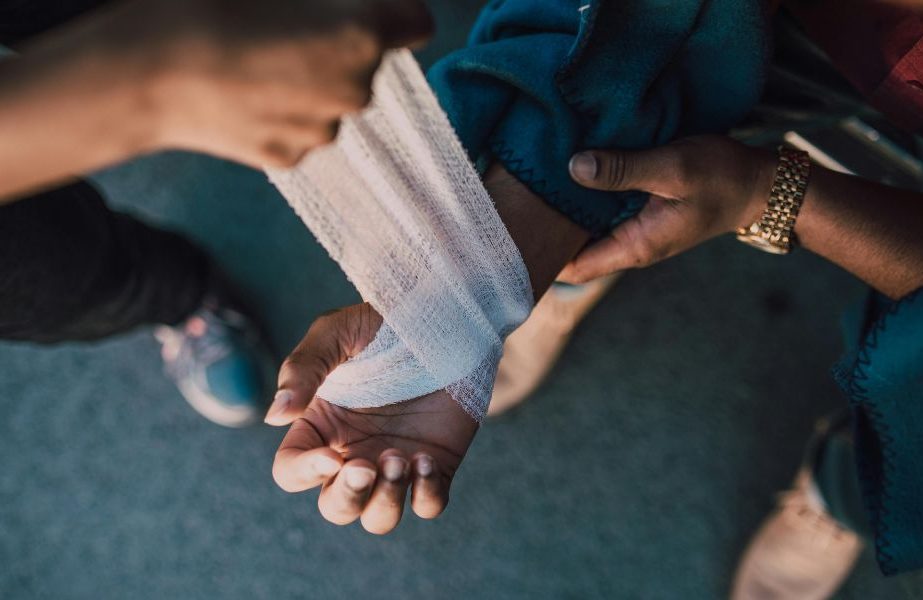
The report published on Houston Public Media earlier this year was alarming! It stated that traffic fatalities in Houston reached a new high in 2024. And it was a big blow for the earlier “Vision Zero” goals.
Furthermore, the Texas Department of Transportation (TxDOT) confirmed 29 more deaths due to traffic accidents in 2024 as compared to 2023.
Also, Houston is seeing this increase in traffic accidents, though the entire state has managed to lower the total number of traffic accidents.
Now, Houston has a vast network of roads, and the city is always bustling with activity. People are rushing, and there are cars everywhere. In such a scenario, overspeeding remains a concern for traffic fatalities.
So, one minute you’re fine, the next you’re in the ER, staring at bills and wondering, “How the heck do I deal with this?”
Most folks ask themselves the same thing: how do I get what I need to recover, money, health, sanity? The answer isn’t simple, but taking it step by step makes it less terrifying.
Right off the bat, you need to document your injuries, see a doctor, and grab evidence. Don’t skip this part. And honestly, having someone who knows what’s up, like The Insurance Outlaw, makes a huge difference. Insurance companies love to poke holes, so having guidance keeps you from getting tripped up.
Hi, in today’s blog, I will discuss how to pursue an injury claim in Houston by gathering evidence and seeking legal help.
Understanding Personal Injury Claims In Houston
A personal injury claim basically happens when someone else’s carelessness hurts you. That’s it. The goal?
Money to cover medical bills, lost wages, maybe even the stress and pain you’ve gone through. Knowing the basics helps you avoid mistakes. And trust me, mistakes can be expensive.
However, when making a personal injury claim, you have to understand the types of claims.
1. General Damages
When you are injured, you are in physical pain. General damages cover this physical pain, along with suffering and the amenities you are losing.
Furthermore, the coverage of general damages will depend on the severity of your injury and how much time you will require for recovery.
2. Special Damages
Special damages in a personal injury claim cover the expenses and the financial losses caused by the accident. These include:
Travel Expenses to Reach Medical Facilities
- Cost of Treatment
- Medical Expenses
- Loss of Earning (In the Past and Future)
- Property Damage
- Cost of Assistance and Care
- Various Expenses You Have Borne
3. Future Losses And Your Personal Injury Claim
After meeting with an accident and having injuries, you may lose your ability to earn or support a life like before. So, this future loss of earnings will be covered in your personal injury claim.
Future losses also include the costs for ongoing treatments and care, which you are also going to need in the future.
It does not matter the type of injury covered in an insurance claim. For every type of compensation and element, the insurance company will assess your documents properly and gather evidence.
How To Pursue An Injury Claim In Houston? Taking The Next Steps
Many injury claims in Houston get settled out of court. However, if the claim is not settled mutually or with the intervention of an attorney, you will have to file a lawsuit.
Nevertheless, when you meet with an accident and you need to file a personal injury claim, this will be your step-by-step guide.
1. Gathering Evidence
Evidence is everything. Photos of injuries, medical records, accident reports, little notes about what happened—grab it all.
Witness statements? Don’t ignore them. Seriously, write stuff down even if it seems minor; it can matter later. Keep everything in one spot. Scrambling for papers later? Nightmare.
2. Seeking Medical Attention
See a doctor fast. Not just because your body might hurt, but because those medical records tie your injuries to the accident.
Follow-ups help too. They show how your daily life has been affected. Insurance people love arguing details, so every note helps.
3. Consulting A Legal Professional
A lawyer isn’t just a “maybe,” and they’re a lifeline. They know the legal mess, they make sure your rights aren’t trampled, and they help you figure out the best strategy.
One wrong move and you could lose time or money. Don’t wing it.
4. Calculating Damages
You gotta know what you’re actually owed. Medical bills, rehab, lost wages, even pain and suffering. They all count.
Getting it right means you’re not settling for less than you deserve. Lawyers crunch the numbers, thinking about now and later.
5. Filing The Claim
Once your evidence is ready, file it. Send it to the insurance company or whoever’s responsible. Timing matters here. Wait too long? Your claim could stall—or worse, get thrown out. Don’t drag your feet.
6. Negotiating A Settlement
Most claims end with a negotiation. Insurance adjusters offer a number, and ideally, everyone walks away somewhat happy. Lawyers push back when offers are low. They make sure you’re not taken for a ride.
7. Preparing For Trial
Sometimes, settlements fail. Then it’s trial time. More evidence, witness coordination, building your case! Yes, it’s a lot of work.
A lawyer is key. They know how to present arguments so the judge or jury takes you seriously. Without one? Not good.
8. Understanding The Statute Of Limitations
Every place has a filing deadline. Miss it, and you might lose your right to any compensation. Another reason to get legal help early is that it keeps you on track and avoids headaches.
9. Maintaining Communication
Talk with your lawyer. Updates, questions, clarifications! Don’t go silent. Staying in the loop makes the process smoother and prevents last-minute surprises.
10. Emotional And Psychological Support
Injuries mess with your head, too. Friends, family, and even professionals can help you deal with stress and anxiety. Staying focused and sane while everything is upside down? Crucial.
Pursuing An Injury Claim Demands Preparations
Jumping into a personal injury claim blind? Big mistake. Take it step by step, lean on pros, and keep your records straight.
Act quickly when things change and stay in touch with your lawyer. Do that, and you’ll be in a way better spot to get the support you need—to heal, recover, and move on.











0 Reply
No comments yet.